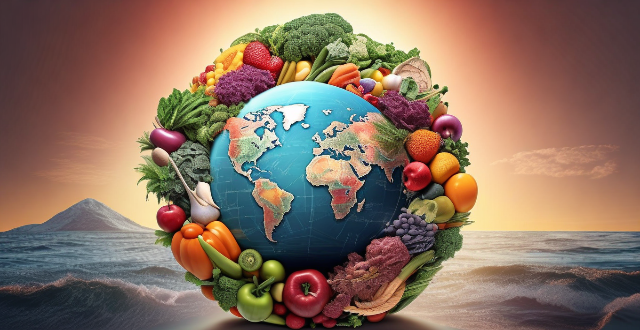Climate change is a global issue that affects everyone, but its impacts are not distributed equally across all populations. Women are often disproportionately affected by climate change due to their roles in society and their biological differences from men. This essay discusses the various ways in which climate change can have negative impacts on women's health and well-being, including extreme weather events, food security and nutrition, water scarcity, reproductive health, and mental health. It is essential that we take action to mitigate the effects of climate change and ensure that all people, regardless of gender, can live healthy and fulfilling lives.

Impacts of Climate Change on Women's Health and Well-being
Introduction
Climate change is a global issue that affects everyone, but its impacts are not distributed equally across all populations. Women are often disproportionately affected by climate change due to their roles in society and their biological differences from men. This essay will discuss the various ways in which climate change can have negative impacts on women's health and well-being.
Extreme Weather Events
One of the most direct impacts of climate change is an increase in extreme weather events such as hurricanes, floods, and droughts. These events can have severe consequences for women's health and well-being. For example, during natural disasters, women may be more vulnerable to injury or death due to their caregiving responsibilities. They may also be at greater risk of sexual violence and exploitation in displacement camps or other emergency situations.
Food Security and Nutrition
Climate change can also threaten food security and nutrition, particularly for women who are responsible for providing food for their families. Changes in temperature and rainfall patterns can lead to crop failures, reduced yields, and increased prices for staple foods. This can result in malnutrition among women and children, which can have long-term health consequences.
Water Scarcity
Water scarcity is another significant issue that can affect women's health and well-being. In many parts of the world, women are responsible for collecting water for their families. As climate change exacerbates water shortages, women may have to spend more time and energy obtaining water, leaving less time for other activities such as education or income generation. Additionally, water scarcity can lead to poor sanitation practices, which can increase the risk of waterborne diseases.
Reproductive Health
Climate change can also have negative impacts on reproductive health. Extreme temperatures can affect fertility rates, while air pollution has been linked to miscarriage and preterm birth. Additionally, natural disasters can disrupt access to reproductive healthcare services, leading to unintended pregnancies and unsafe abortions.
Mental Health
Finally, climate change can have significant impacts on mental health. The stress and trauma associated with natural disasters or displacement can lead to anxiety, depression, and post-traumatic stress disorder (PTSD). Women who are already vulnerable to mental health issues may be at even greater risk in these situations.
Conclusion
In conclusion, climate change is a complex issue that has far-reaching impacts on women's health and well-being. From extreme weather events to water scarcity to reproductive health concerns, climate change poses significant challenges for women around the world. It is essential that we take action to mitigate the effects of climate change and ensure that all people, regardless of gender, can live healthy and fulfilling lives.